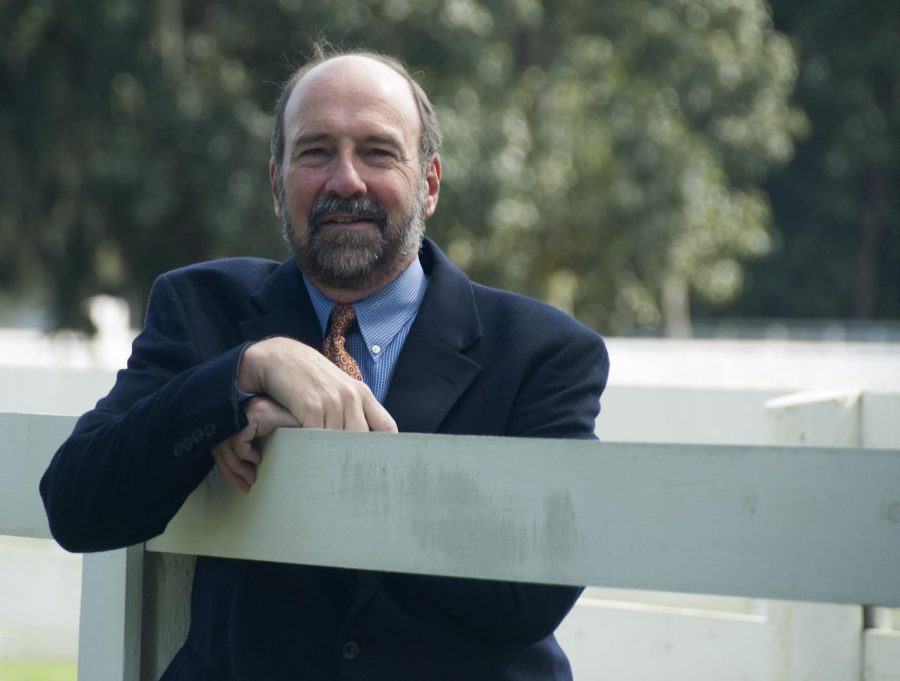Herald alum named executive editor of The Courier-Journal
September 26, 2013
Those who knew Neil Budde during his time as a student at WKU knew he was destined to be a pioneer in the field of journalism.
An alumnus of WKU’s School of Journalism and Broadcasting, Budde was officially hired as executive editor of The Courier-Journal in Louisville last Thursday.
Budde, a member of the class of 1977, was among the first of WKU’s journalism graduates. His numerous accomplishments include a spot in the Kentucky Journalism Hall of Fame and a Daniel Pearl Award. He is also the founding editor of The Wall Street Journal Online.
Budde first came to WKU to participate in a two-week journalism workshop in the summer of 1972. He returned the summer before his senior year of high school for the Junior Scholars Program, where he took his first college- level journalism class.
It was during these summer programs that Budde caught the eye of Bob Adams, then advisor to the Herald. Adams said Budde stood out from the very beginning.
“He was always responsible,” Adams said. “I think he was born mature.”
When Budde enrolled at WKU in 1974, he joined The College Heights Herald staff as a sports reporter.
Tom Caudill, now deputy editor at the Lexington Herald-Leader, was a junior when he met a freshman Budde in the fall of 1974.
Caudill said Budde was involved in big stories and moved up quickly because people recognized his talent.
By his sophomore year, Budde was second in command at the paper and worked closely with Caudill, who was editor at the time.
While working as an editor in 1975, Budde continued to write stories for the Herald. In the fall of that year, he reported extensively about a major conflict between members of the Board of Regents regarding a decision made granting tenure to two professors. Ultimately, both professors were denied tenure. The vote of the Student Government Association president was the deciding vote.
“It was obviously excellent reporting of a controversial topic at the highest level at Western,” Adams said.
Caudill said he was never surprised by what came next for Budde.
After he graduated, Budde went on to work as a reporter at The Courier-Journal for eight years.
He was then hired at the Wall-Street Journal, where he founded the Wall-Street Journal Online. Since formulating the ideas for the site in 1993, the Wall-Street Journal Online has become the largest paid news site on the web. When he left the publication, they had nearly 700,000 subscribers.
“Neil always had a knack for the technology,” Caudill said. “Sometimes the type-setting machine would break down and Neil would go in and try and fix it. I was never really surprised that, given his technical mind, he became a pioneer and adapted to the technological side of journalism.”
Budde’s willingness to try new things is what has made him so successful, Caudill said.
Anne Chesnut, a Lexington lawyer and Herald alumna, said she remembers the late nights at the Herald.
“I’ve never been in another situation where I have worked that hard and had that much fun doing it,” Chesnut said. “It was a very driven group, but really driven about the right things — wanting to put out a really high quality paper.”
Caudill said the bonds people have on the Herald often last a lifetime.
“If he called me on the phone, I’d drop everything to answer his call,” Caudill said.
Budde said students were given a lot of freedom by the administrators and it was those he worked with at the Herald who helped him figure out how to do journalism in a real-world setting.
“That’s what we were doing, we were inventing ourselves,” Budde said. “You have to constantly be learning new things and re-inventing yourself.”
The opportunity for re-invention was what made the prospect of returning to The Courier-Journal so exciting and challenging, Budde said.
“Unless you have people who are excited about making change at the local level, it’s not going to happen,” he said.
Developing The Courier-Journal’s brand around context and helping people understand what is going on in the community are two things Budde said he hopes to accomplish.
“Our primary focus should be on the value (of the story),” Budde said.
As for the future of journalism, Budde is troubled by how many current journalism students want the old world of print journalism to continue.
“My advice is to learn how to adapt to a changing market,” he said.
Despite his success since graduating from WKU, Adams said Budde is very humble.
“Neil was one of the most forward thinking, innovative students,” Adams said. “He didn’t say a lot, but you knew when he did say something you should really listen.”
Chesnut described Budde as earnest and hardworking but at the same time, fun.
“He was a little bit younger, but he was in charge – it was really amazing,” she said. “I can’t help but think that Neil will bring wonderful things to Kentucky newspapers.”






















![Students cheer for Senator at Large Jaden Marshall after being announced as the Intercultural Student Engagement Center Senator for the 24th Senate on Wednesday, April 17 in the Senate Chamber in DSU. Ive done everything in my power, Ive said it 100 times, to be for the students, Marshall said. So, not only to win, but to hear that reaction for me by the other students is just something that shows people actually care about me [and] really support me.](https://wkuherald.com/wp-content/uploads/2024/04/jadenmarshall-600x422.jpg)

